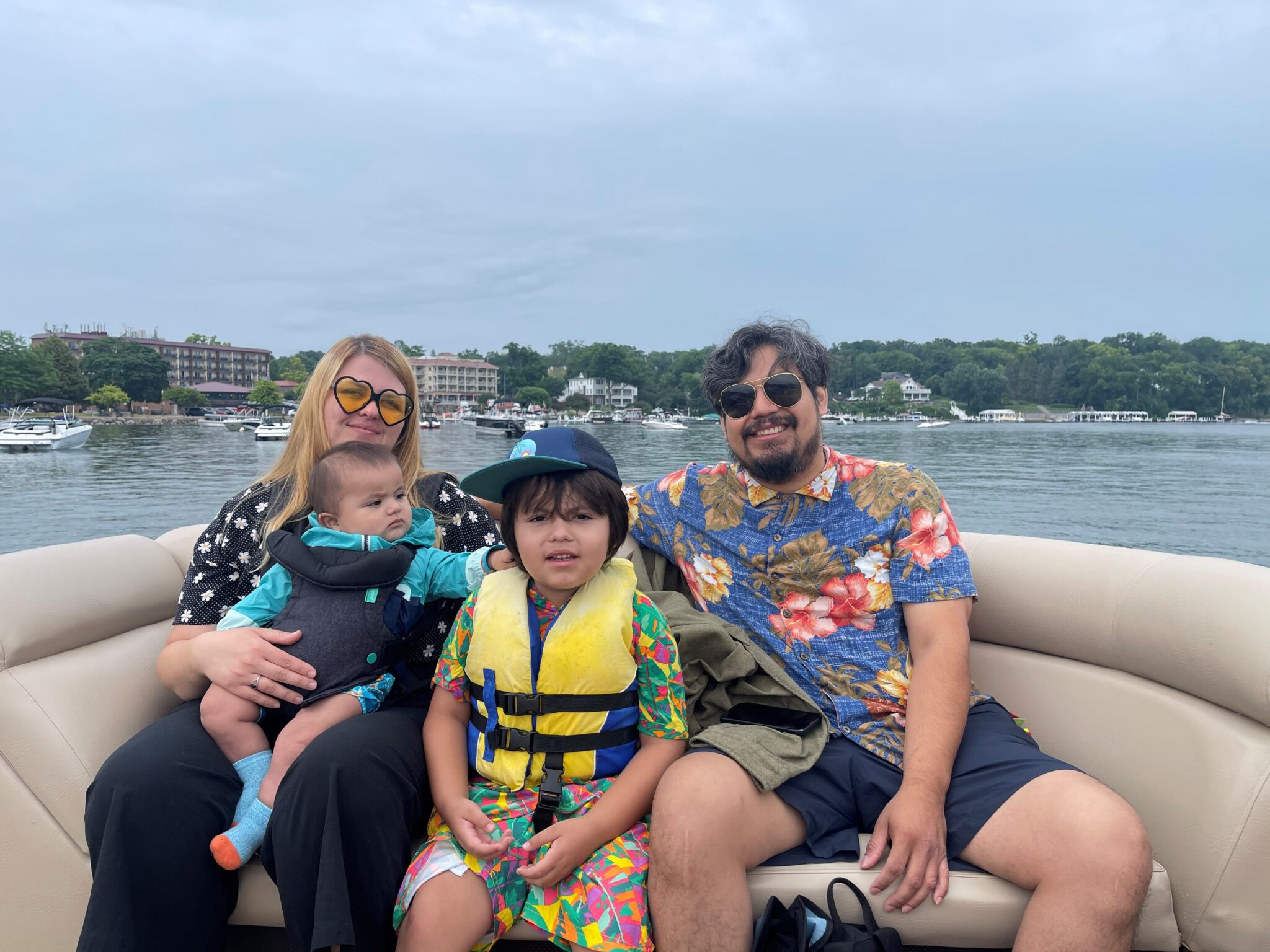When Stacie and Erick Pineda’s son, Solomon, was a toddler, they began to have concerns about his developmental milestones and behavior. He experienced delays in his fine motor skills and would have meltdowns when transitioning from one activity to another.
Their concerns continued to mount as Solomon struggled with these transitions, leading to frequent meltdowns. Additionally, he started displaying an unusual behavior of lining up all his toys, which caught his parents’ attention and prompted them to seek an evaluation.
“At that time, one of our close friends was a behavior therapist at SARRC, and he recommended that we schedule an autism evaluation for him,” Erick recalls. “That’s when Solomon received an autism diagnosis through SARRC at the age of three.”
After Solomon’s diagnosis, the family explored the resources and programs offered by SARRC. It was during this time that they decided to enroll Solomon in the Community School — a preschool program that provides early childhood education for students with and without autism in an inclusive classroom setting.
“When we received the diagnosis, I wanted him to receive ABA therapy both at home and in a school setting, and the Community School was the right fit for us,” Erick said. “Enrolling Solomon in the preschool was the best decision we’ve made. Everyone was extremely helpful and caring, and they were all invested in seeing Solomon grow and become more independent.”
During Solomon’s time at the Community School, Erick and Stacie also participated in weekly parent meetings. These meetings helped the family learn more about autism and how to best support Solomon at home as well as at school.
For the Pineda family, these meetings and resources provided valuable knowledge that equipped them to navigate various situations. In addition to Soloman benefiting from applied behavior analysis (ABA) in the classroom by SARRC’s team, Erick and Stacie also learned how to use ABA allowing them to reinforce positive behaviors and find ways to reward their son when he learned a new skill or reached an important milestone at home.
“It has personally helped me understand his diagnosis,” Erick says. “The parent meetings were essential in learning how Solomon’s brain works and the best ways to support him.”
Solomon, now five years old, graduated from the Community School this past summer, and according to Stacie and Erick, he has made remarkable progress.
“Solomon has blossomed,” Erick says. “He has developed language skills to communicate his emotions, tell jokes, and share details about his day. He no longer lines up his toys; he has started engaging in imaginative play and now interacts with his peers, even making friends.”

